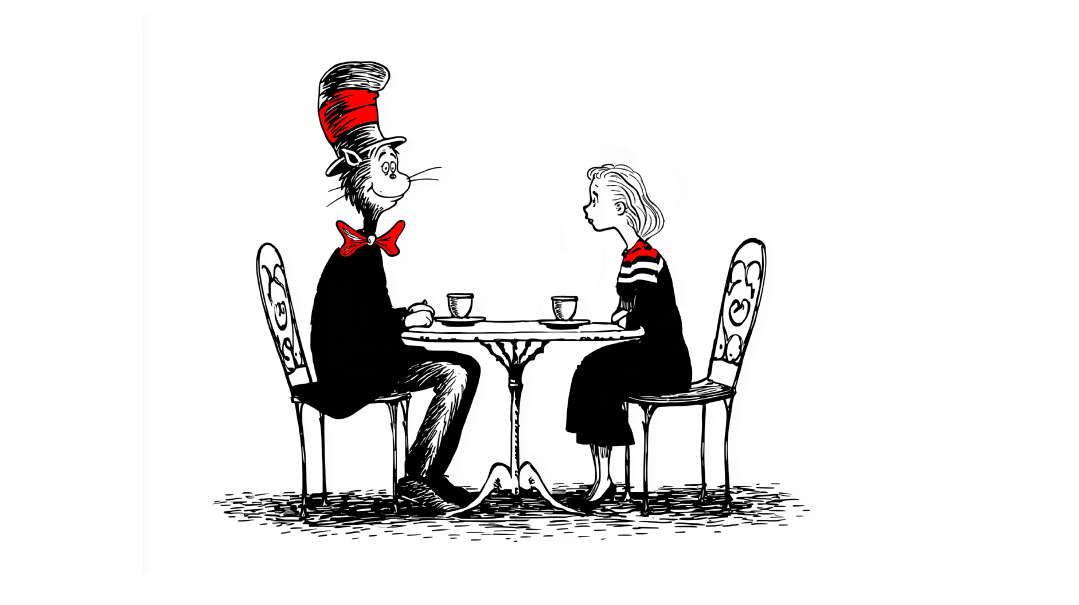A Mother’s Heart
| February 17, 2021The doctor said my baby was fine — but I knew something was very wrong

As told to Musia Slavin
Wednesday, Yom Kippur, 5779 (2018)
I stood in the living room of my Upstate New York apartment, my children scattered around the room in varying states of mess and fun. I side-stepped the blocks and reached for my siddur on the shelf.
Three steps back. I tried my best to tune out the noise around me as I davened for the year to come. I thought about my six children, the pride and joy of my life, and the one resting within me, yet to join us in This World. Hashem, please bentsh us all with koach, with parnassah, with gezunt. Three steps forward.
And the world around me came back into view.
Thursday, Yud-Alef Tishrei
“It’s a boy,” the doctor announced above the shrill sound of my baby’s cry. A healthy seven pounds, eleven ounces. Alert, adorable.
Thank you, Hashem, for this wonderful gift.
Thursday, Tes Cheshvan
I peeked into the cradle, where our four-week-old bundle of cuteness was whimpering. Before I started feeding Mayer, I grabbed a tissue from the box near the crib and wiped his nose. It had been drippy for the past few days.
“Do you not want to eat?” I asked a few minutes later. He was supposed to be hungry — and his kvetching proved that — but my little one was refusing to nurse.
Should I be worried? I wondered.
Friday, Yud Cheshvan
My head hurt. For three days straight, Mayer barely stopped crying. His cold had progressed. Every time he coughed, his little body shook. I couldn’t get him to nurse, and I was starting to get nervous. I stopped by the pediatrician’s office for a quick check-up. “It’s just a virus,” the doctor told me.
“But he’s not eating!” I said.
“When you’re not feeling well, are you in the mood of food?” she asked.
She had a point. Mayer was just under the weather. Soon the cold would dissipate and his appetite would return. Then our lives would go back to normal.
Friday, Yud-Zayin Cheshvan, 4 p.m.
Although I’d been to the doctor twice that week, my heart was telling me we needed another visit. Her office was already closed for Shabbos, so I called the pediatrician on her personal line. “I don’t know what’s going on,” I explained. “This whole week, Mayer’s been going back and forth — he wants to eat, then he doesn’t. He’s happy, then he’s not. Today, he isn’t nursing, and I’m feeding him with a dropper. I know you keep saying that it’s a virus, but I think something is off.”
Trusting that a mother always knows best, the pediatrician recommended we take action. “Find a doctor’s office and have the doctor send you to the hospital so that you get admitted quickly,” she advised.
Hadlakas neiros was an hour and a half away. If we were going to have a crazy Shabbos, at least we could welcome it in the typical way. My husband and I decided I’d finish Shabbos preparations and light candles, then we’d walk over to the doctor’s office.
When I stood in front of the candles, I could hardly make out the flames. My eyes were brimming over with tears as I davened. “Yehi ratzon… Hashem, please be kind to me and those who are close to me. Grant us all a good and long life. Remember us l’tovah…” After licht tzinden, my sister came by to check up on us.
“We’re going to the doctor any minute now,” I told her.
“Why? Mayer looks perfectly fine right now.”
“No, something is wrong.”
“No, everything is fine,” she countered.
“I hope you’re right,” I said, “but I don’t think you are.” Di hartz fun a mameh veist, a mother’s heart knows when something is wrong.
Friday night, Yud-Ches Cheshvan, 7 p.m.
My husband and I sat in the doctor’s office and waited for Hatzalah to come get us. The doctor’s instructions had been clear. Mayer had pneumonia. We needed to get to Westchester hopsital, fast.
On some level, I was relieved. I knew I’d done everything I could to take care of our son.
On the way to the hospital, my husband held the baby as I kept looking out the window. “How much longer?” I kept asking the driver. “Why is it taking so long to get to the hospital?”
“There’s no need to worry. Look — your baby is fine,” he nodded toward Mayer. “Baruch Hashem, we don’t need to rush.”
The staff in the emergency room, who knew we were on the way, immediately set us up in a room. They took Mayer from my husband, and from there began a frenzy of doctors and wires. For close to two hours, they poked him with one needle after another. They ran tests, then they ran some more. Doctors walked in and out of the room, speaking in hushed tones outside our door.
A technician schlepped a large ECHO-cardiogram machine into Mayer’s cubicle.
“Why are you checking his heart?” I asked. “Our son was born perfectly healthy!”
The technician ran the ECHO and turned the screen toward the doctors, who were waiting to read the results. Their faces were stone.
“It looks like you’ll have to stay for the night,” one finally offered. “Your baby has something wrong with his heart. He’s so weak right now that we need to intubate him so his body has a chance to rest.” My stomach dropped. “But don’t worry,” the doctor continued. “He’ll be okay.”
Friday night, 9 p.m.
The doctors asked my husband and me to leave while they intubated Mayer. It wasn’t a good idea for parents to see the process, they said. We paced the hall outside his room, whispering chapter after chapter of Tehillim.
I was in the middle of saying the words of Hallel when we heard every machine in the baby’s room go off. Shrill beeps filled the air and surrounded us with fear. Mayer’s room had been packed with hospital staff before; now it was flooded.
“Bring the epi!” we heard the cardiologist yell.
“One second,” the nurse said. “I’m recording the dose.”
“This baby is dying. We don’t have one second.”
Our five-week-old baby had gone into cardiogenic shock. His organs were failing and, according to the doctors, he was on his way out. It’s a chesed that my husband and I didn’t realize how bad it was at the time. If we had, would we have survived those long moments?
It took 18 staff members, but they brought Mayer back.
“We need to move upstairs to the PICU,” they told us, once Mayer was stable enough to transport. The team packed him up and wheeled him to the elevator. I walked alongside them, ignoring the stark symbolism as I pushed my now-empty stroller.
I chatted with the nurse in the elevator.
“What made you realize that something was wrong enough to come to the hospital?” she asked.
“I don’t know. G-d made me have a funny feeling in my heart.”
She shook her head. “You don’t even realize how lucky you are.”
I was curious. “What would’ve happened if we came to the hospital two days ago?” I asked her.
“Nothing at all. We would’ve told you that it’s a virus and sent you back. Your son would have gone into shock while you were at home with no resources to help him. He wouldn’t have made it.”
I knew right then, as I rode alongside my son in the hospital elevator, that Hashem was holding our hand. Someone was watching over us and our baby. He was going to be okay.
Friday night, 11 p.m.
The cardiologist spoke to my husband and me outside the baby’s room. “Your son’s virus reached his heart,” he explained. The disease, dilated cardiomyopathy, occurs rarely — in one case out of 100,000. Mayer’s heart muscles became so enlarged they couldn’t pump blood properly anymore.
The doctors wanted to give his body a chance to rest, so they hooked him up to machines and let them take over the work of pumping blood for a while. The nurses were in the process of attaching Mayer. It would be a few more hours until we could see him.
“You know, it’s Shabbos,” my husband said when the cardiologist left. “We should go to the bikur cholim room for a seudah.”
I laughed. Seudah? Who could eat when their son was so ill?
But we weren’t any use in the hallway, so my husband and I walked down to the bikur cholim room and prepared a small meal from what we found in the pantries. My husband sat at the head of the tiny table and began singing the words of “Shalom Aleichem.” I sat near him and sobbed.
Only a Yid can be joyous when his child is sick, I thought. We can sing because we know we have Hashem looking after us.
Shabbos morning, 7 a.m.
After close to ten hours of working on Mayer’s machinery, the doctor finally let us into the room. We had no clue what to prepare ourselves for — no parent ever should. Our little boy was attached to numerous machines. The wires wrapped around him and twisted into huge, foreboding machines. They were keeping him alive.
I stood near his crib and started crying again.
“It’s Shabbos,” my husband said softly. His voice was choked. “We can’t cry.” I
I I took a deep breath and wiped the stray tears. I thought about the nurse who’d come by Mayer’s room that morning. She’d bustled with his wires while mumbling “one lucky baby” over and over.
We were lucky, I reminded myself as I held back the tears. When I davened Nishmas that morning, I felt like I couldn’t thank Hashem enough. I was grateful that we got to see chesed after chesed after chesed.
Motzaei Shabbos, Yud-Tes Cheshvan
As frightening as Shabbos was, it was also calm. There were no cell phones flashing with messages from family. There were no grandparents counting on us for updates. There were no well-meaning friends giving deterring opinions. It was just a white hospital room with me, my husband, my baby — and the Shechinah surrounding us.
Mayer was going to need months of hospitalization. We knew that Shabbos was our last bit of quiet before all would break loose.
When the stars came out and Shabbos ended, the calm left with it. I called my parents to let them know about Mayer’s hospitalization, cardiogenic shock, and diagnosis. “His condition is serious but stable,” I said. The word “critical” was too scary, so I stayed away from it.
When my father took the phone, he shared something he’d learned in Gemara. There’s a scenario discussed about three business partners who are unsure about their next steps. Two want to try a new business opportunity, but the third is against the decision. He thinks it’s a bad idea and wants to do something else. What’s the halachah? Which opinion do they follow?
The halachah is that when it’s two against one, the majority wins. The single dissenter is obligated to bend over and follow their opinion, even though he doesn’t agree.
“When it comes to raising each child, there are three partners,” my father said. “Hashem, your husband, and you are all in this together. You two need to stay strong in your emunah that Mayer will get better, so that Hashem will have to make sure that Mayer is gezunt.”
For the first time since Shabbos morning, I started crying. That’s the moment I decided: My husband and I had a mission. We need to stay positive no matter what.
Sunday morning
My husband had stayed in the hospital overnight so when morning came, I was there to answer my children’s questions. I sat them down before they left for school.
“You know how Mayer wasn’t feeling well? His heart got a virus and now he’s in the hospital. Today in cheder, you have a special job. You need to daven and learn extra well as a zechus he gets better. Make sure that Mayer is on the Tehillim list because every single tefillah can help him.
“Remember how Mommy was so nervous? Remember how I was crying when I lit the Shabbos licht? It’s because Hashem made it that a mother should know when something is wrong. Baruch Hashem, we were able to get Mayer the help he needs. We know and believe that Hashem does everything for the best — vos er tut is gut.” I waited for their little heads to nod in agreement.
“When is he going to come home?” they asked.
“I don’t know yet.”
“Is he very sick?”
“We believe that he’s going to be okay.”
“Is he going to die?”
“Why should we think that way? We know that Hashem can do everything and anything.” I already knew that Hashem worked k’heref ayin. One moment I’d been holding my baby in the emergency room and the next, he was seconds from death. I had no doubt that yeshuas Hashem could happen just as quickly.
“We don’t choose our situations,” I told them. “But we can choose how we want to react. We’re going to be meeting a lot of new people now and this family is making a choice to make a kiddush Hashem.”
After the kids were on their buses, I thanked Hashem that the conversation had gone well and called my neighbor. Just a few months before, she’d hosted a parlor meeting on behalf of Yameitz Libecha, an organization dedicated to families dealing with heart conditions. I had no idea back then that I’d need their help.
She gave me a cell phone number for Chaya Waks, the organization’s director, and with shaking hands, I made the call. We spent more than two hours on the phone. Chaya walked me through Mayer’s condition and explained it in simple terms so that I could understand each detail.
“Can I add him to our Tehillim list?” she asked. My heart swelled at knowing that a total stranger cared that much. She told me she was mailing a packet with more information and then advised that we look into having the baby transferred to Columbia. Although Westchester hopspital was a good hospital, Columbia was better equipped for Mayer’s condition.
Sunday afternoon
“Here’s the deal,” the doctor told us back at the hospital. “Around 30% of the babies with this condition don’t make it. Another 30% need heart transplants. The last 30% respond well to medications and get better.”
“Okay, Mayer is going to be part of the 30% that improve with medications,” I said. I didn’t want to even hear about transplants. With Hashem in charge, anything was possible. He could easily make sure that Mayer turned out fine.
Monday, Chaf Cheshvan
I was singing to Mayer near his bed when a technician walked in with a huge EEG machine. “What’s that for?” I asked. “He’s already attached to so much.”
“We need to check his brain function since he lost so much oxygen,” she explained.
“No need,” I said. “My baby is perfectly okay.”
“How do you know?”
“I do.”
When she came back with the results, she was smiling. “You were right — Mayer is perfectly fine.”
Wednesday, Chaf-Beis Cheshvan
How are things? Chaya Waks texted. I appreciated how she would randomly check in. It was good to know that, in all the chaos, she was there for us.
They said they’ll be able to extubate Mayer tomorrow, I texted back. I was excited about the extubation, but also nervous. Mayer was so sick. What if he couldn’t handle it?
“Don’t worry,” she wrote back. “The hospital knows what they’re doing. They’ll only take him off if they feel like it’s okay.” Meanwhile, she said, she was going to get in touch with Columbia. She still wasn’t sure how we would get in, but she thought it was important for us to transfer.
Thursday, Chaf-Gimmel Cheshvan
When Thursday came, the doctors pushed off the extubation. Chaya was right — we could trust that they would make the safest decision.
“So what happens now?” I asked the cardiologist. He said the entire medical team would have a conference to discuss the situation and decide on a plan. I turned to my husband and said, “I don’t know what, but something good is going to come of this.”
When the doctor came around to Mayer’s room again, I had a request. “Can I hold him?” He was connected to so many wires I didn’t think it was possible. Surprisingly, the doctor said that he’d make it happen.
It took three nurses to unhook Mayer enough for me to hold him. I held him close and cried. Later, I found out that the doctor made the arrangements because he thought it would be my last chance.
Thursday night, Chaf-Daled Cheshvan
When I saw Westchester calling my home phone, I panicked.
“Is everything okay?” I shouted into the phone. The cardiologist was on the line.
“Everything is fine,” he said. He was calling to update us on the team’s conversation. Apparently, they decided that Mayer’s best option was a transplant.
“We need to transfer him because we’re not a transplant center,” he said. “We reached out to Columbia, and they’re ready to take him.”
“See! I told you that something big was going to happen,” I said to my husband. “Hashem is rolling out the red carpet so that we can transfer to Columbia.”
Sunday afternoon, Chaf-Vav Cheshvan
Transferring Mayer was precarious. He was unstable and the trip could risk his life. It took days to get transferred. Columbia didn’t have a bed available and unless they found a spot, Westchester was going to have to transfer us elsewhere.
Chaya Waks moved worlds to get us in. She spent days on the phone until she called with an update. “You have a bed at Columbia. Mayer is going to be transferred today.” Mi k’amcha Yisrael!
The Columbia team came to pick us up from Westchester and we said our goodbyes to the hospital staff. “We’re going to come back so that you can meet him when he’s healthy,” we told them. I don’t think they believed us.
Monday, Chaf-Zayin Cheshvan
When we first met the staff at Columbia, I asked them about the transplant process.
“What transplant?” they asked. “We’re not going to talk about that until we know that we’ve done everything we can to save Mayer’s current heart.” Hearing that was a brachah. I knew that we were in the best place.
There were many ups and downs during Mayer’s hospital stay — that’s just how it is with cardiac issues — but we were never alone. Our family, our friends, and the team at Yameitz Libecha were there at every corner we turned. Each time there was a setback, it was immediately followed by two or three or four things that went better than we could have hoped.
When I’d speak to my kids during that time, I’d tell them to imagine Mayer back at home. “Imagine that he’s going to be like any other baby who’s making a huge mess with all the pots and pans,” I said. “Imagine that he’s going to come home for Chanukah — he’ll be our very own neis.”
Sunday, Erev Chanukah, Chaf-Daled Kislev
For five weeks, the team at Columbia gave Mayer strong medications that helped his heart heal on his own. There was no need for a transplant. Mayer was coming home. Yeshuas Hashem had been k’heref ayin.
He left the hospital the day before Chanukah, and, like we’d all imagined, he was there when we bentshed licht. Mayer was our very own Chanukah light.
Monday, Yud-Tes Adar
In honor of Purim, I took Mayer back to Westchester for a visit. We were there to make a kiddush Hashem. When we walked in with a healthy, beaming baby, the team burst into tears. We’d told them we’d be back, and indeed, we were.
Today
Mayer’s heart function is nearly perfect and according to the doctors, it will serve him well until 120, b’ezras Hashem.
After he started walking at 13 months, he raided the cabinets one day. I walked into the kitchen and found him surrounded by pots and pans, happily banging around in the mess he’d made.
I watched and burst into tears. After weeks of heartache, days of prayer, and incredible support from very special people, we merited to witness the very scene we’d davened for.
(Originally featured in Family First, Issue 731)
Oops! We could not locate your form.













